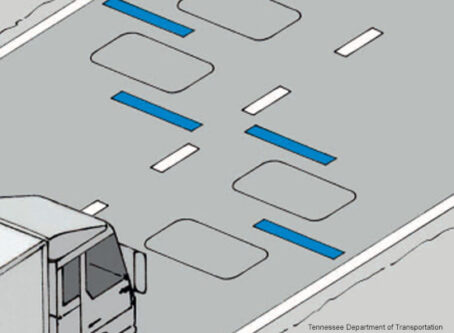Minnesota cities approve sales tax increases for roads
Voters in two of Minnesota’s largest cities decided on Tuesday, Nov. 7 whether to approve sales tax increases to benefit roads.
City of Rochester
The ballots in the state’s third-largest city included a question to extend the local option sales tax.
In place since 1983 and extended in 2012, the half-cent sales tax covers multiple funding needs in the city of Rochester.
Without an extension, the tax is scheduled to sunset in 2024. At that time, it will have raised the $139.5 million goal set in 2012. By a 53% to 46% margin, voters approved an extension of the tax that is estimated to raise $205 million over the next 16 years for projects that include road reconstruction.
Advocates said without the extension, the city would need to increase property taxes to cover funding needs for flood control, housing, road reconstruction and the construction of a new sports complex.
“The city has addressed community needs through a sales tax for more than four decades,” City Administrator Alison Zelms said in a news release. “This year, Rochester voters chose to continue that legacy.”
Street maintenance is slotted to receive $50 million. The money will be used to repair and rebuild aging roadway stretches identified as being “most in need of repair.” City officials said these repairs will make the streets safer and more efficient for travel.
Rochester voters approved a proposal to renew the City’s half-percent sales tax to invest $205 million in street projects, flood control, water quality work, an economic vitality fund and a new regional sports and recreation complex.
Learn more: https://t.co/b1jFMxLAcU pic.twitter.com/NAAbBkSJ6m
— City of Rochester MN (@CityofRochMN) November 8, 2023
City of St. Paul
Voters in the state’s second-largest city approved a question to authorize the highest sales tax rate in the state.
St. Paul collects an 8.875% local sales tax. By a 60% to 40% margin, voters supported Question 1 to increase the tax rate by 1% to 9.875%.
The penny tax is estimated to raise nearly $1 billion over the next two decades for city infrastructure.
An estimated $738 million will be allotted to repair and improve streets and bridges, including 24 arterial and collector roads. Another $246 million is slotted for parks and recreation facilities. The tax won’t apply to household items like groceries, clothing and other necessities. Supporters said the sales tax increase will allow the city to collect additional revenue from visitors.
“We have a unique opportunity to make an exceptional investment in our city’s roads and parks, providing future generations with sound infrastructure,” St. Paul Mayor Melvin Carter said in prepared remarks.
Opponents said St. Paul’s tax rate increase will result in people traveling to other cities to shop. LL









